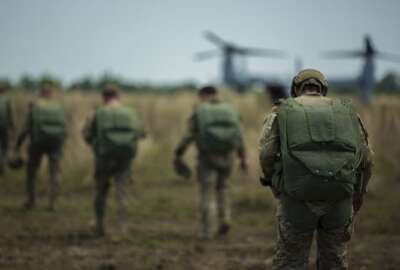
Army captain describes how to make tactical economics more effective
The Iraq War introduced tactical economics, which puts into military ground units' hands money to help local stability efforts when combat can only go so far.
Best listening experience is on Chrome, Firefox or Safari. Subscribe to Federal Drive’s daily audio interviews on Apple Podcasts or PodcastOne.
The Iraq War introduced a novel concept informally called tactical economics. It puts into military ground units’ hands money to help local stability efforts when combat can only go so far. This cash can help the military consolidate its gains in places like Mosul, and Army Capt. Duncan Walker has advice for how to make so-called tactical economics more effective. He had two deployments in Afghanistan and now teaches economics at West Point. He joined Federal Drive with Tom Temin for more discussion.
Copyright © 2025 Federal News Network. All rights reserved. This website is not intended for users located within the European Economic Area.
Related Stories
 Exclusive
Exclusive 


